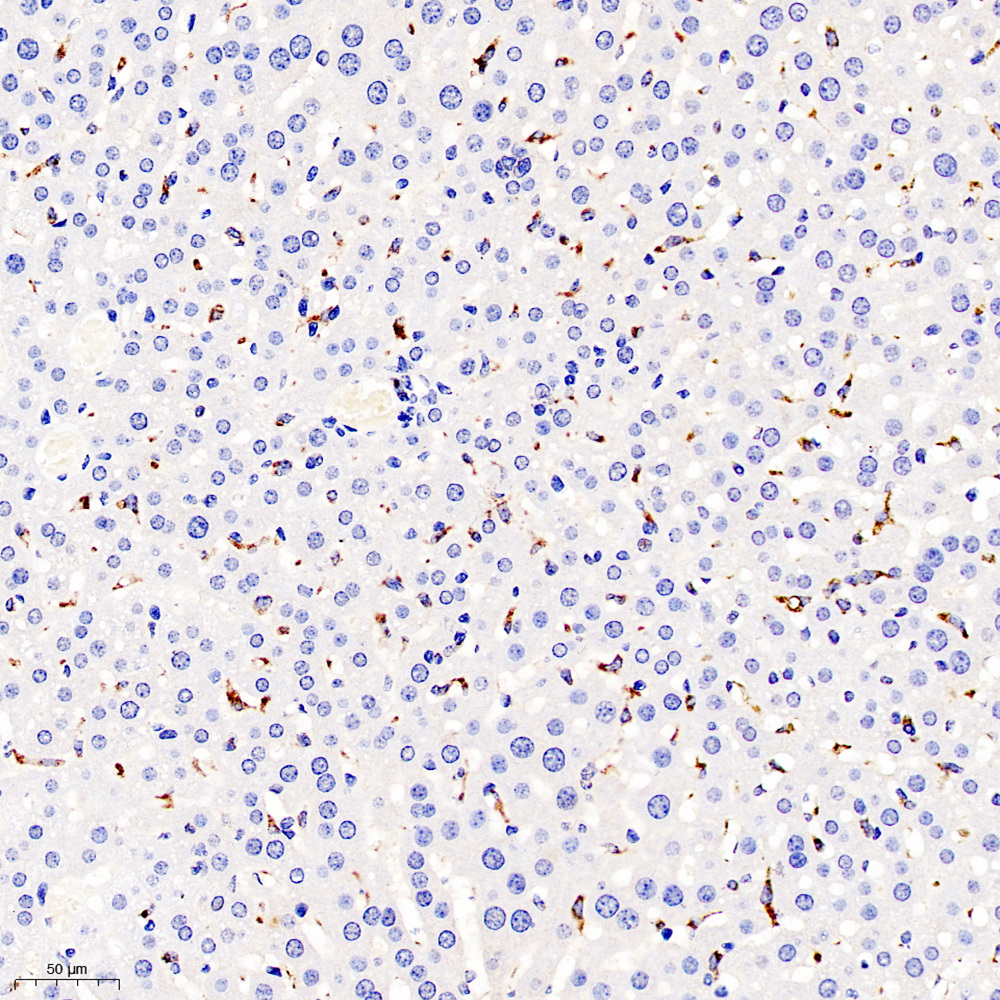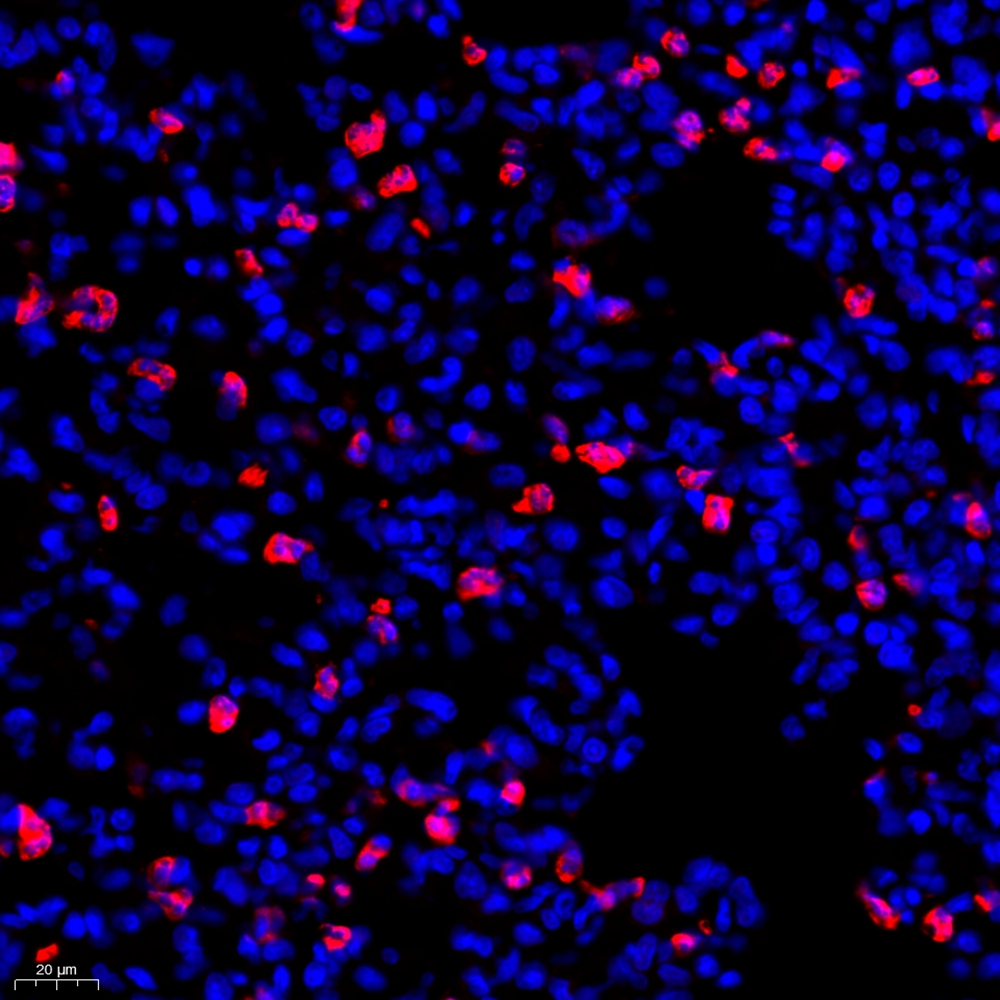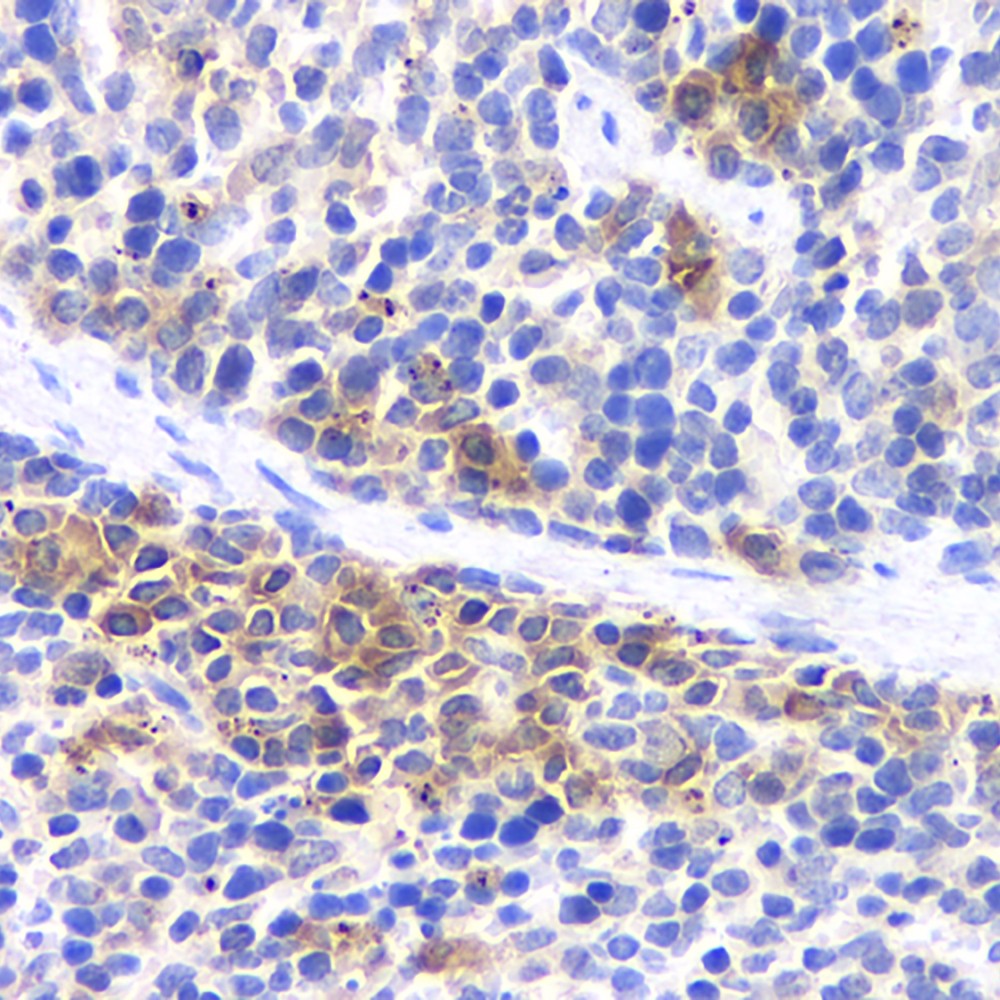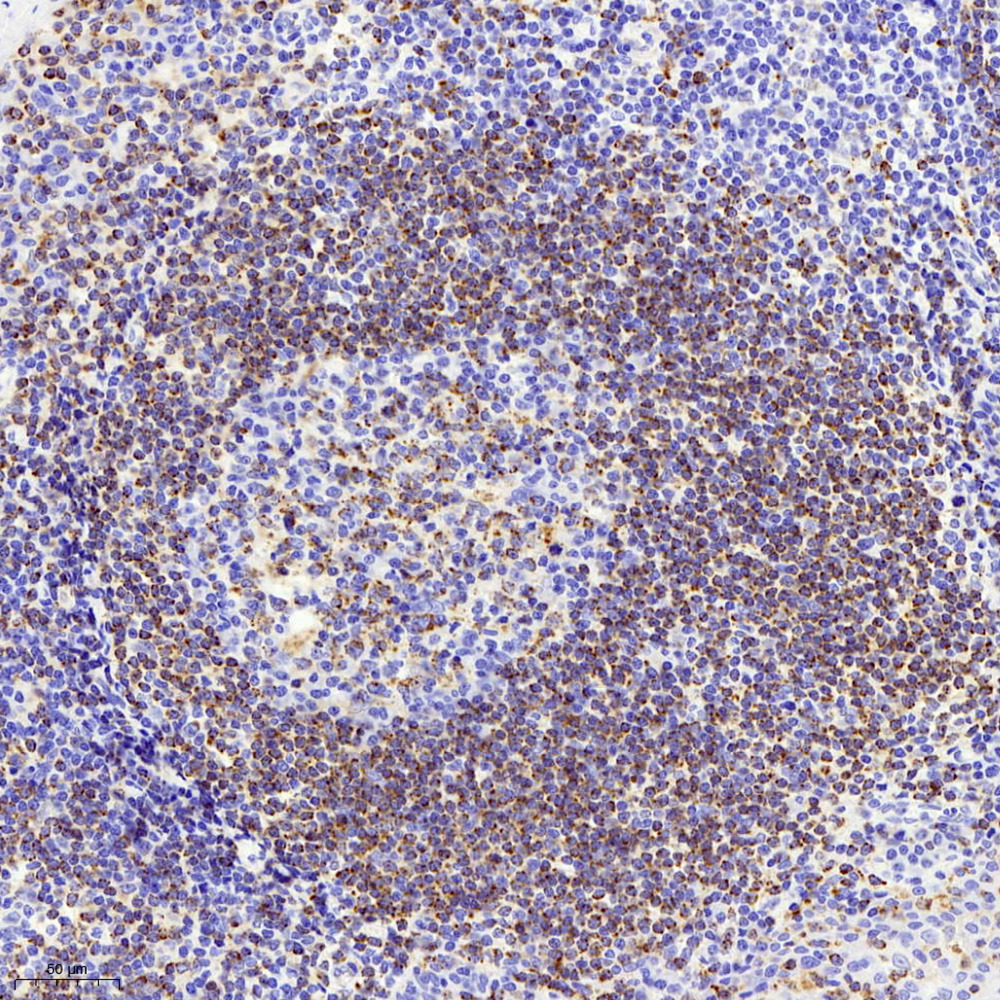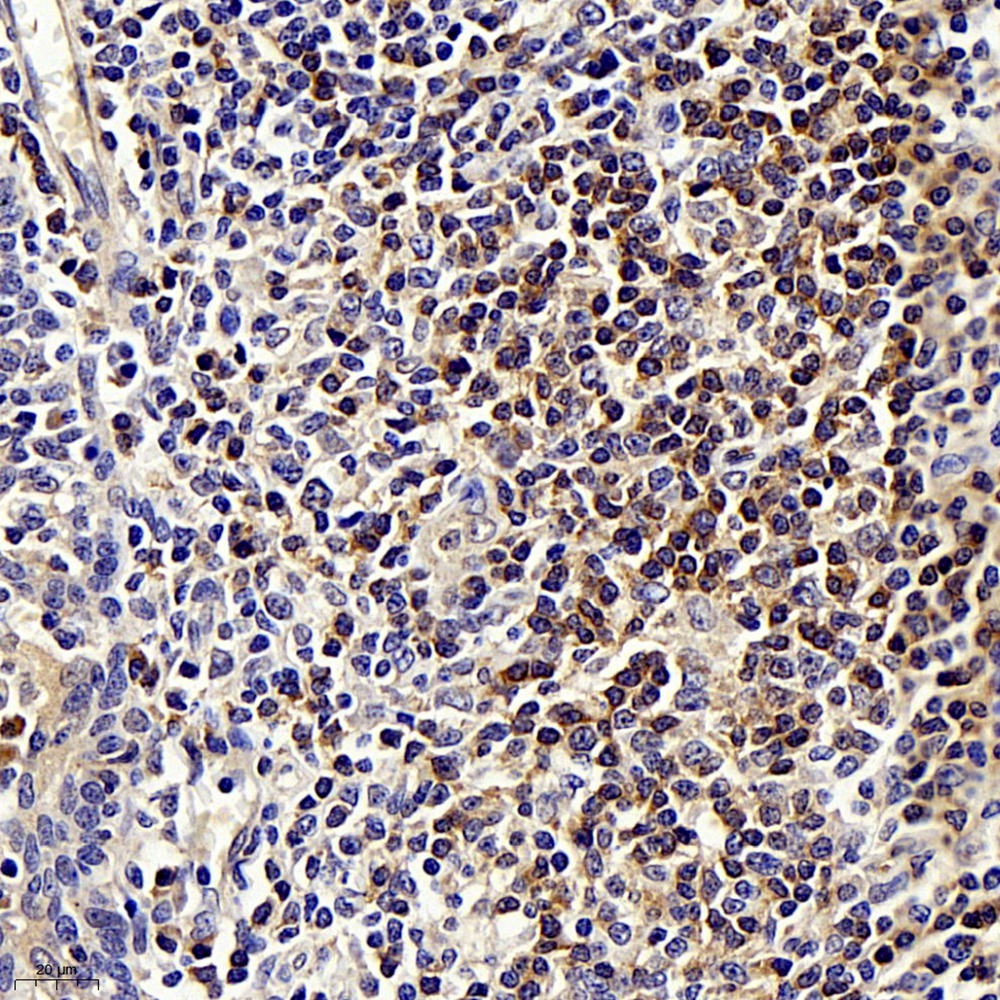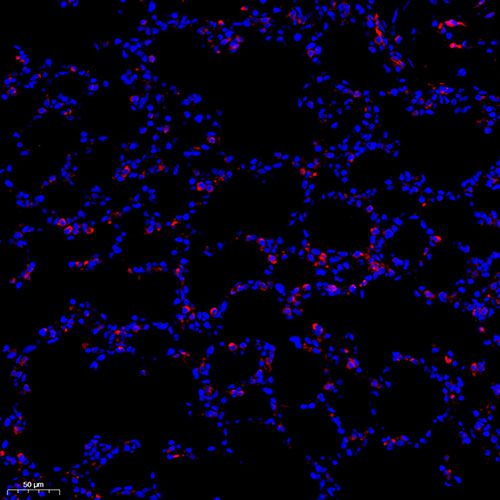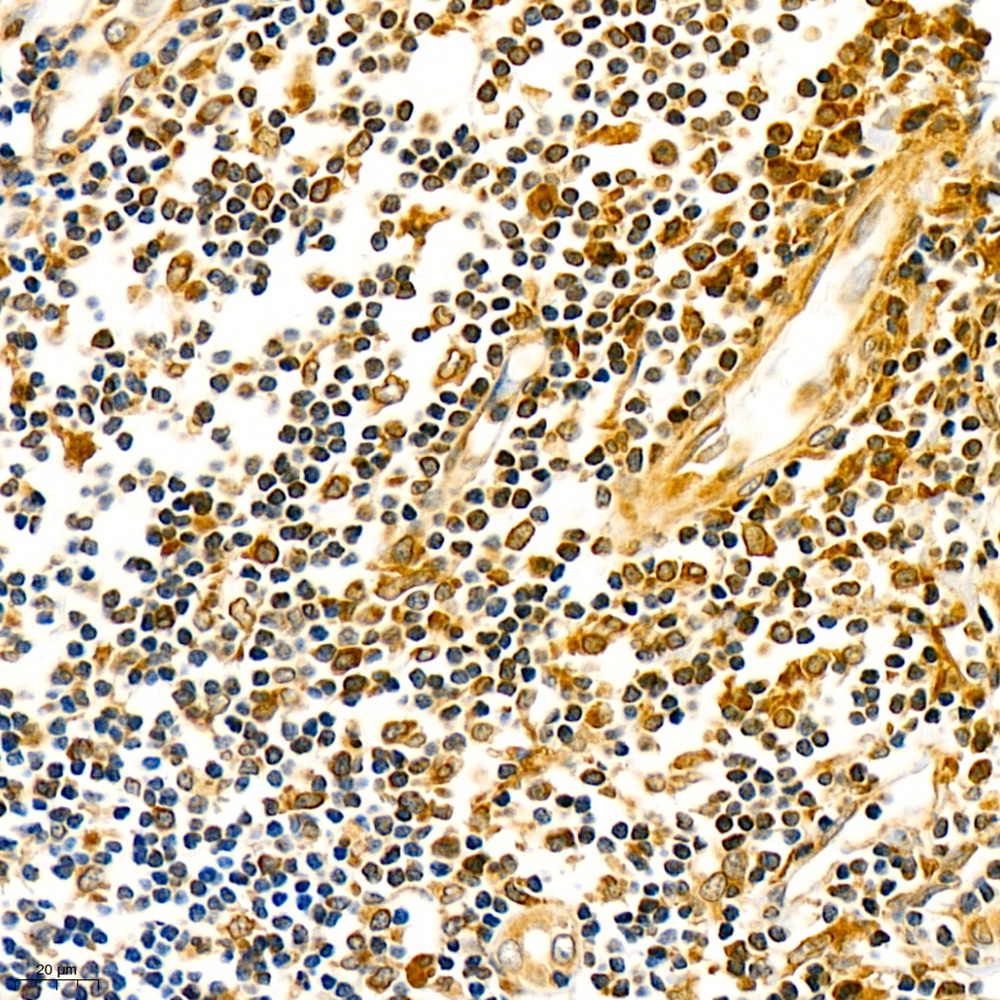服務(wù)熱線
400-1016-218


全國(guó)統(tǒng)一服務(wù)熱線
400-1016-218
科研好幫手 專(zhuān)業(yè)生產(chǎn)商
本公司產(chǎn)品僅供科研使用
您現(xiàn)在所在位置:主頁(yè) > 產(chǎn)品中心 > 抗體 >>一抗 >>細(xì)胞因子 >> Anti -G-CSF Rabbit pAb
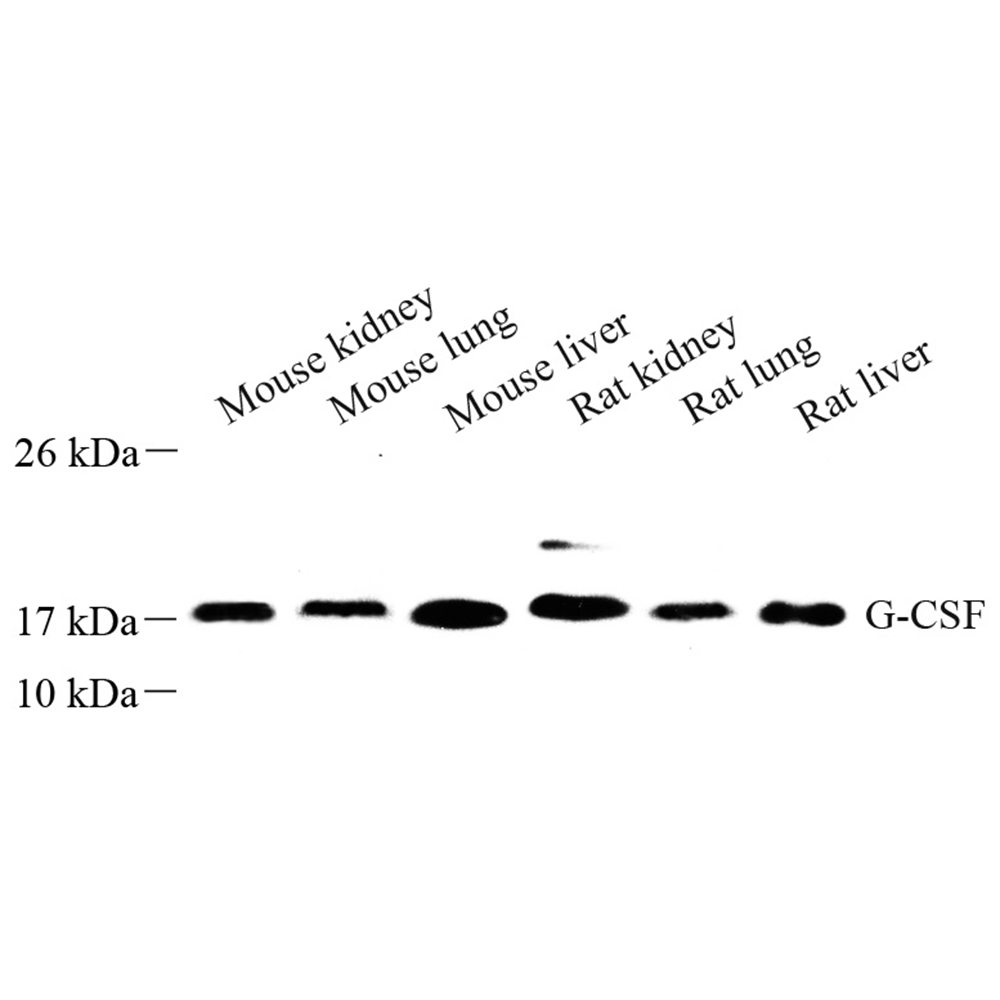

Product Information
|
Description |
G-CSF rabbit polyclonal |
|
Protein full name |
Granulocyte colony-stimulating factor |
|
Synonyms |
G-CSF, Csf3, Csfg, CSF3, GCSA |
|
Immunogen |
KLH conjugated Synthetic peptide corresponding to Mouse G-CSF |
|
Isotype |
IgG |
|
Purity |
Affinity purification |
|
Predicted MW. |
22 kDa |
|
Observed MW. |
19 kDa |
|
Uniprot ID |
Applications
|
Applications |
Species |
Dilution |
Positive Tissue |
|
WB |
Mouse, Rat |
1: 500-1: 800 |
kidney, lung, liver |
Background
Granulocyte colony-stimulating factor (G-CSF), also referred to as CSF3, is a protective cytokine with anti-inflammatory effects. G-CSF is important in promoting survival of the granulocytic lineage cells and proliferation and migration of neutrophils as well as trophoblast cells. G-CSF acts by binding to its receptor G-CSFR (also called CSF3R), which after binding with G-CSF activates the canonical Janus kinase (Jak)/signal transducer, activator of transcription (STAT)and Ras/Raf/MAP kinase pathways. G-CSF potently stimulates the proliferation and release of peripheral blood progenitor cells into the bloodstream and is therefore used to treat neutropenia after chemotherapy. Furthermore, G-CSF levels are elevated upon intensive exercise leading to increased neutrophil counts, which are predominantly due to delayed neutrophil apoptosis.
Images
|
|
Western blot analysis of G-CSF (GB111039) at dilution of 1: 800 Lane 1: Mouse kidney tissue lysate Lane 2: Mouse lung tissue lysate Lane 3: Mouse liver tissue lysate Lane 4: Rat kidney tissue lysate Lane 5: Rat lung tissue lysate Lane 6: Rat liver tissue lysate |
Storage
| Storage | Store at -20 ℃ for one year. Avoid repeated freeze/ thaw cycles. |
| Storage Buffer | PBS with 0.02% sodium azide, 100 μg/ml BSA and 50% glycerol. |
NOTE:
1.This product is intended for research only.
2.This product is recommended to dilute with the Primary Antibody Dilution Buffer .
合肥萬(wàn)物生物科技有限公司
客服熱線:400-1016-218
QQ:355185756
地址:安徽省合肥市高新區(qū)黃山路602號(hào)合肥國(guó)家大學(xué)科技園A401室



 關(guān)注微信公眾號(hào)
關(guān)注微信公眾號(hào)

